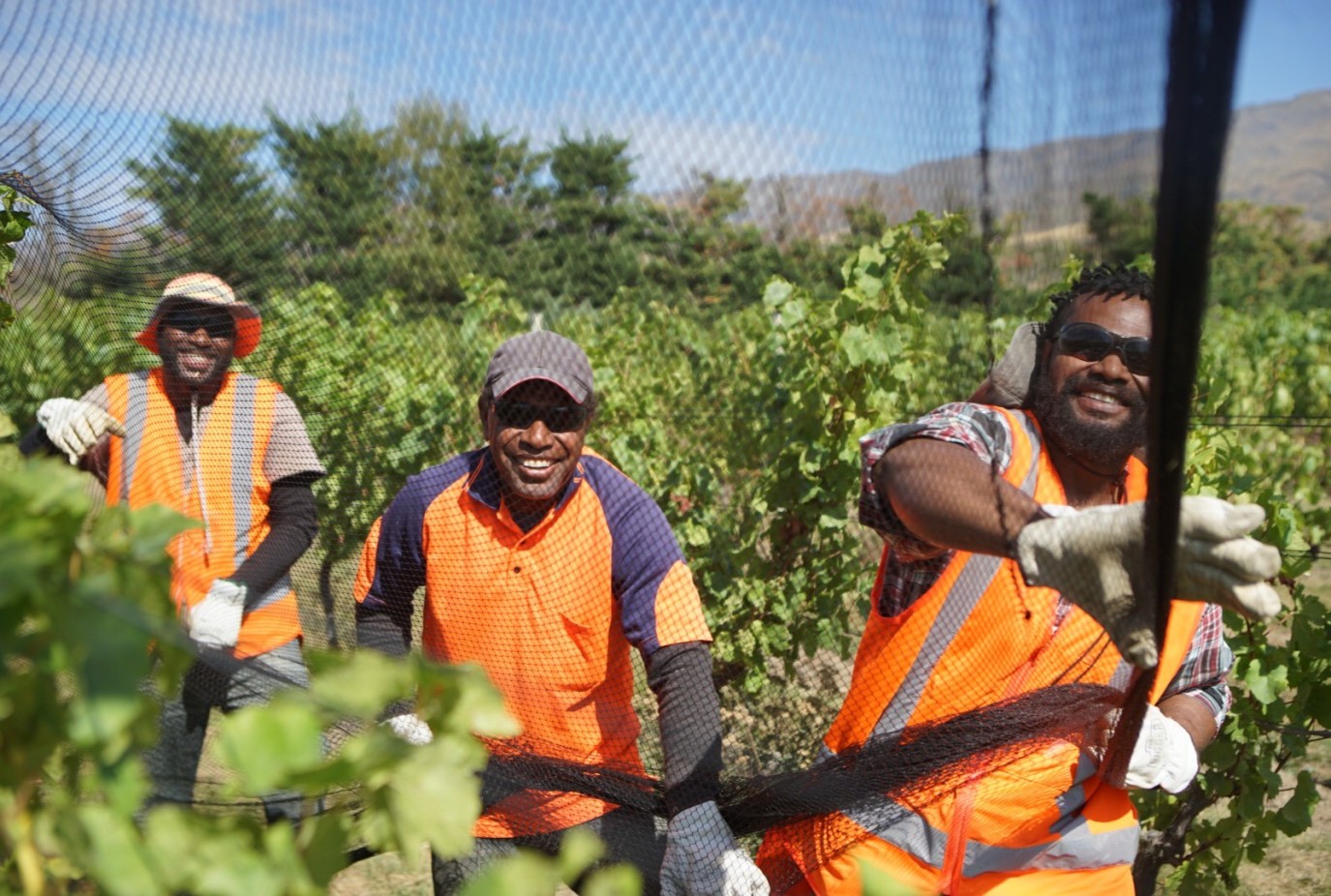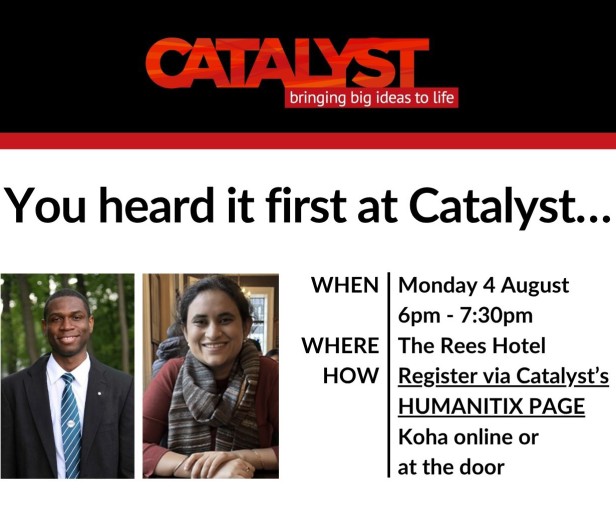Bumper record grape yield for Central Otago

- HARVESTING UNDERWAY EARLY
Central Otago vineyards have had a phenomenal growing season and some have already begun harvesting in what’s expected to be a record bumper grape harvest – at least 10 to 15 percent more than normal for some.
International award-winning Gibbston winegrower Grant Taylor, who put Central Otago pinot noir on the map with four golds at the prestigious International Wine Competition in London from 2001, is predicting record volumes at his local Valli Wines’ vineyards.
A veteran of the local wine industry, Grant’s now on his 31st Central Otago vintage and says the fantastic hot summer is translating into earlier harvests, depending where and what variety. “There shouldn’t be any unripe grapes which means the wines will be nice and rich and full bodied,” says Grant, whose team began harvesting Valli’s first grapes on Thursday (March 23) – at least a week early.
“It’s a heavier crop than expected – at least 10 to 15 percent up in volume for us. This could possibly be the biggest, record sized harvest ever, even bigger than 2008 which was a huge vintage, and there have been more grapes planted in vineyards since then.” Fruit quality is also looking to set records too.
“I’m excited to start the ride and it looks like it will be a very, very good ride.”
Costs for winegrowers have shot up with labour costs doubling in the last few years, says Grant. “Barrels, fuel, everything’s gone up, and with inflation up some 10 percent over the last two years. We’ve barely kept our heads above water.”
Wine prices have remained the same for two to three years and while Grant says wine lovers can expect a 10 to 15 percent cost increase passed on it won’t hit until this vintage is on the shelves next year.
“We’re selling last year’s vintage now and it doesn’t seem right to increase the price when it didn’t cost us more. It’s just the right thing to do.” However, a 2024 price increase goes without saying. “We’re not greedy. We just need to stay alive,” says Grant, whose Valli label is set to produce 7000 cases in this next vintage from its Gibbston, Bannockburn, Bendigo and Waitaki vineyards. However, local growers are exceptionally grateful and feel deeply for their friends in Hawkes Bay after what they’re enduring due to Cyclone Gabrielle, he says.
Central Otago Winegrowers Association’s Jake Tipler says this season has been fantastic for the local industry with really good grape yields. Uneven flowering at the start of the season made it hard to predict crop levels resulting in an abundance of grapes. “There’s even talk of a few extra grapes floating out onto the spot market which is not super common,” says Jake.
Our long hot summer means the grapes are showing good tannin levels. “That’s the sweet spot – the Goldilocks Zone and we’re in that now. Everyone’s really happy,” says Jake. The yield across Central Otago is likely to be up at least five to 10 percent, producing some 12,000 tonnes, he says.
Labour has been a big additional cost factor for growers but Jake says the bigger crops may keep those prices down once that lag from production to sales has passed next year.
PACIFIC ISLAND HAWKES BAY VINEYARD WORKERS HELP WITH CENTRAL OTAGO HARVEST
Between 60 and 70 Pacific Island vineyard workers, whose Hawkes Bay workplaces were wiped out or destroyed by Cyclone Gabrielle, have been transferred to Central Otago to help with the harvest.
It’s the first time in several years Central Otago vineyards are not being plagued by labour shortages with their bumper, early harvest upon them. While some of the workers may be surplus now that overseas worker visas and RSE (Registered Seasonal Employment) visas have been increased, winegrowers say they desperately wanted to help their devastated Hawkes Bay counterparts.
Industry contractors and co-operatives have been re-placing the workers, many from Vanuatu, throughout Central Otago and some will then move on to Marlborough for winter pruning, says Central Otago Winegrowers Association general manager Jake Tipler.
Local winegrowers feel hugely for their Hawkes Bay counterparts, many of whom have had their life’s work and vineyards completely wiped out by Cyclone Gabrielle last month (February), he says. Some winemakers and viticulturists left without a harvest have also been invited to join some Central Otago winemakers. “It’s very depressing for these people not being able to make wine any year in a good 20-plus season career. Marlborough has done the same,” says Jake. “We’ve tried to re-home them as it’s pretty gutting. Their grapes have been wiped out, the harvest they’ve worked for. We’ve heard some horrific stories that would make a grown man cry. They’ve lost everything.”
An estimated 600 RSE workers, many from Vanuatu, come to Central Otago each summer season alone to work in viticulture and orchards, many of them sending money back to family.
Grape Vision viticulturist James Dicey says with only 1.7 percent unemployment locally the industry’s heavily reliant on the trained RSE workers coming back each season to Central Otago. With the recent cyclone in the Hawkes Bay RSE employers have worked together to transfer RSE workers who were due to go to the Hawkes Bay to other regions, including Central Otago. However, government RSE visa conditions weren’t waived meaning local employers have had to pay between $350 and $400 per worker to free the RSE workers up from one region to another, which was disappointing.
Seasonal Solutions CEO Shaun Fogerty says it’s a juggling act moving RSE workers around South Island vineyards and housing them. Developers in Cromwell and Alexandra are looking at building staff accommodation but a current nationwide RSE review has made them cautious, as has rising inflation and building costs
“We brought 35 extra RSE vineyard workers here who couldn’t be employed,” says Shaun. “Bringing 60 or 70 Hawkes Bay workers here is Central Otago’s way of helping support Hawkes Bay and the wider crisis. It’s been a real collective support network that’s come together to help those in Hawkes Bay so their Pacific staff have work and can support their families back home.”











